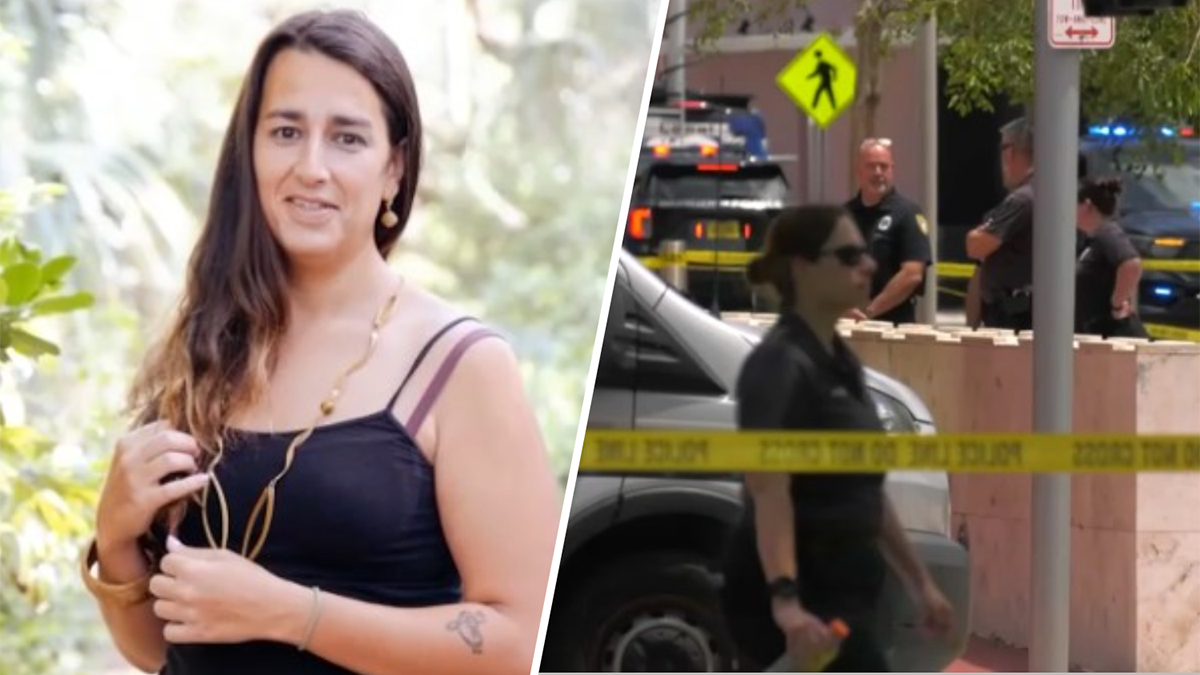A simple, five-paragraph historic plaque on the front portico of an Orthodox Jewish temple in South Florida honors a 2004 gathering of Holocaust survivors, but it signifies much more. It's the linchpin of a federal court battle pitting a city's powers to designate historic buildings against the free exercise of religion.
The case of Temple B'nai Zion v. City of Sunny Isles Beach and its mayor, Norman Edelcup, makes claims of religious discrimination, government harassment and interference with property rights. The temple's president, Rabbi Aaron Lankry, wants to modify the structure — formerly a Lutheran church — to more properly befit an Orthodox Jewish congregation.
The temple's lawsuit contends that the city conjured up the historic designation as a pretext to improperly prevent any changes to the temple. And, the lawsuit contends, much of the problem stems from a personal dispute between Lankry, Edelcup and other Jewish members of the city commission who left the temple after he arrived in 2004 as it moved from Conservative to the more strictly observant Orthodox Judaism.
- Jewish Museum of Florida Asks Congregants to Text Message Thoughts on Rosh Hashanah, Jewish New Year
Caught in the middle is a separate Orthodox congregation, Beit Rambam, which also worships at the temple and has no issues with the historic designation. B'nai Zion has filed a separate lawsuit against that congregation, claiming it is violating terms of its lease.
The main case was originally dismissed by a Miami federal judge, but the 11th U.S. Circuit Court of Appeals earlier this year overturned that ruling. The appeals judges sent the case back for a decision on the temple's claim that the city historic designation was done for discriminatory reasons and interferes with the congregation's religious practices.
The case is one of several brought by religious organizations challenging local laws and ordinances around the country under a 2000 federal law known as the Religious Land Use and Institutionalized Persons Act. The law bars state and local governments from imposing a "substantial burden" through land use regulations on the free exercise of religion, unless the government can show it has a compelling interest.
The U.S. Supreme Court has never defined "substantial burden" in these types of cases, leading to different rulings in different parts of the country.
Local
In South Florida, B'nai Zion attorney Daniel Wallach said Lankry has one overarching goal in pursuing the lawsuit, originally filed in 2010.
"He wants the historic designation removed from the property. It inhibits the temple's growth. It reduces the value of the property," Wallach said. "That is a burden on his property rights."
Former Miami U.S. Attorney Kendall Coffey, who represents Sunny Isles Beach and its mayor, said rather than religious freedom, the major concern of B'nai Zion is how the historic designation affects the property's value. Coffey noted that Edelcup and several other city officials involved in the decision are also Jewish.
"They are alleging anti-Jewish discrimination on the part of public officials, the vast majority of whom are Jewish," Coffey said. "It's far-fetched, although the plaintiff (B'nai Zion) has an obvious financial motive."
Sunny Isles Beach is a small seaside city northeast of Miami with about 21,000 residents. Founded less than a century ago, it has only one property designated as historic: the B'nai Zion temple.
The city's preservation board has left out some other buildings that might be considered in that category, such as the 67-year-old Golden Strand Hotel where baseball slugger Babe Ruth once lived and which hosted celebrities such as Burt Lancaster, Grace Kelly and Gary Cooper. Other buildings on its Motel Row at times hosted the Beatles, Ray Charles and Ike and Tina Turner, among others.
The temple purchased its current property in 1977 from a Lutheran church, removed Christian symbolism such as the stained glass and minimized the cross-shaped design of the sanctuary. A cross atop a front tower was replaced with a Star of David.
The preservation board twice before considered whether to designate the temple as historic, but the proposal was discarded both times. As its congregation grew, B'nai Zion applied for new building permits that included demolishing the main building. Those were rejected, and the city hired a historic preservation consultant to determine if the temple could meet historic criteria.
Meanwhile, according to the temple's lawsuit, the city issued 12 code enforcement citations against B'nai Zion over a 16-month period for such things as improper wiring and "unsightly objects" on the temple property.
"The city has embarked on a relentless campaign of harassment against the temple," the lawsuit says.
Court documents recount several contentious meetings between Lankry and Edelcup, including one occasion when the mayor allegedly referred to B'nai Zion members as "a bunch of pigs." The rabbi was later accused during a public meeting of calling a Jewish city commissioner an anti-Semite.
The historic preservation consultant's report, delivered in 2010, recommended the temple as a historic site because of the 2004 gathering of about 300 Holocaust survivors in one of its buildings, even though other such gatherings had been held elsewhere. The preservation board approved the recommendation for the temple sanctuary, an outer tower and its portico — meaning none of those structures could be altered or demolished. The city fastened the historic plaque on the church shortly after the vote.
One Sunny Isles Beach commissioner, George "Bud" Schull, said at a 2010 meeting that the city was making a mistake.
"The core issue is, are we going to burden somebody's property rights and take something away from them over some arguments that I think are a little flimsy, personally?" he said. "I don't really buy into the veracity of these arguments."
Still, the historic designation was approved and the current lengthy court battle has followed.
Left in limbo is the current congregation of about 100 families leasing the property, Beit Rambam. That group's attorney, Philippe Lieberman, said they are fighting eviction and are fine with leaving the temple as it is, historic designation included.
"My client enjoys the premises, wants to stay at the premises, wants to worship there," he said. "We're happy there."
The case is currently before U.S. District Judge Kathleen Williams, who has set a December 2014 trial date. The two sides are currently in mediation, under the judge's orders, to try and work out a solution.
The mediator, also Jewish, is handling the case for free in hopes the two sides can reach an accord.



